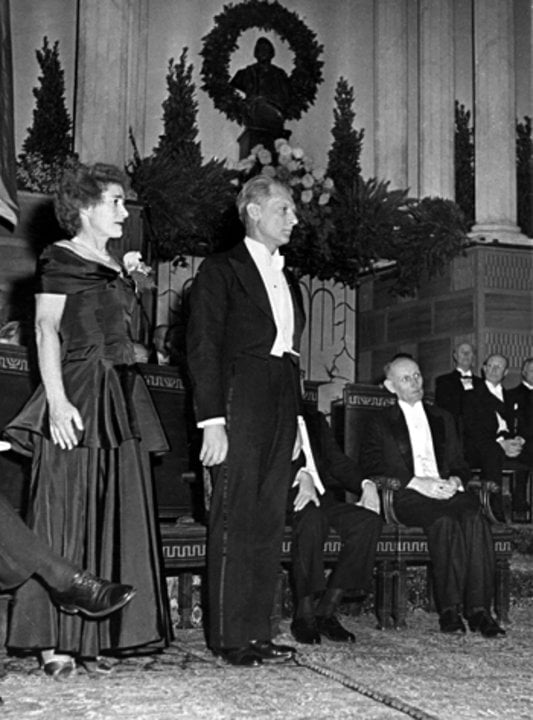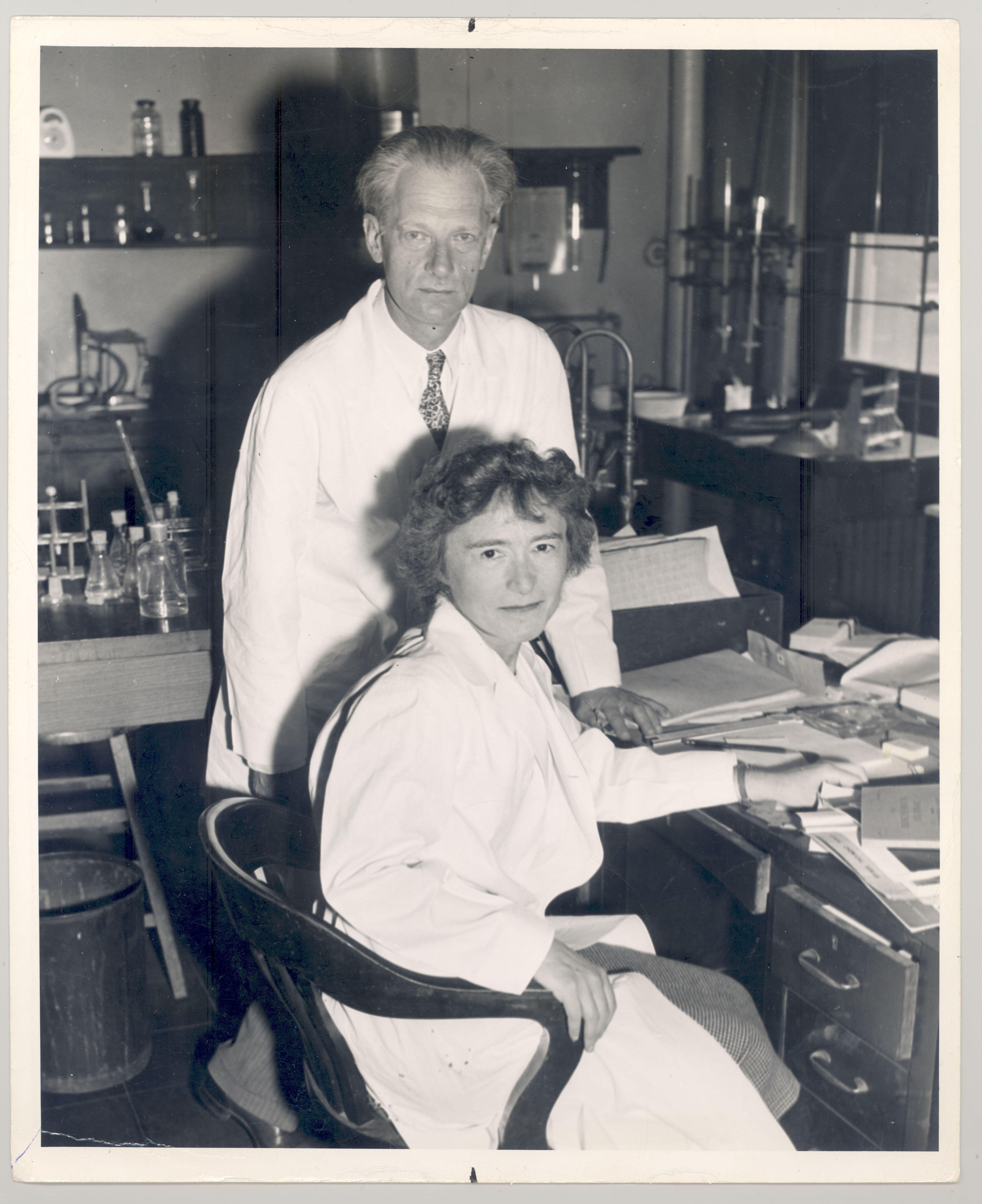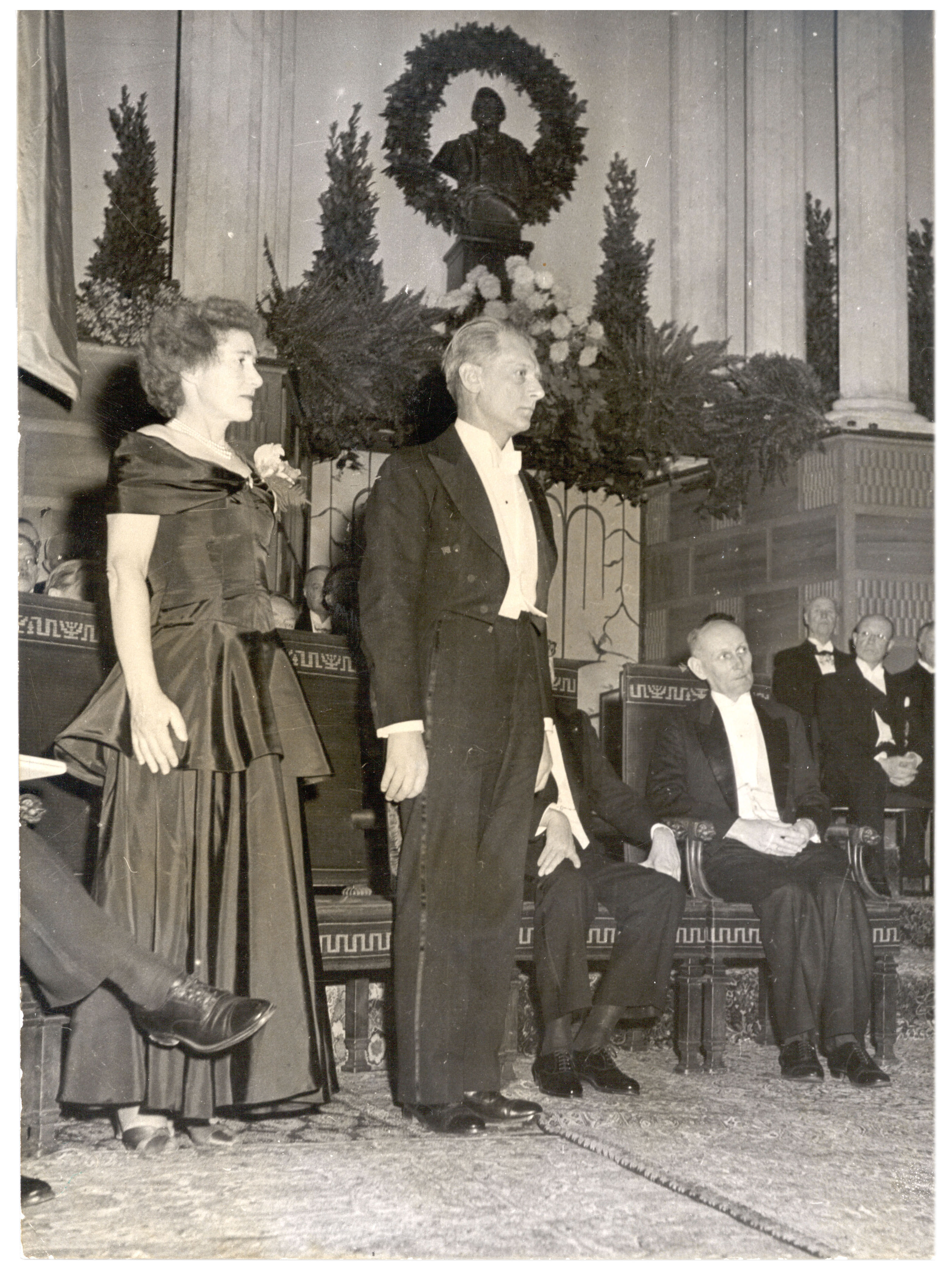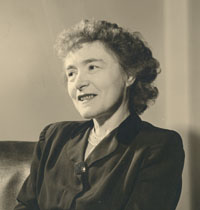The Trailblazing Journey of Gerty Cori: Pioneering Woman in Science
In the annals of scientific history, few figures stand out as prominently as Gerty Cori, a trailblazer who overcame numerous barriers to reshape the landscape of biochemistry. Her incredible journey, marked by persistence and brilliance, demonstrates not only her scientific prowess but also her indomitable spirit in the face of adversity. As the first woman to be awarded the Nobel Prize in Physiology or Medicine, Cori’s legacy extends far beyond her groundbreaking discoveries, inspiring generations of scientists to come.
Early Life and Education
Born in Prague in 1896 to a culturally-rich and intellectually-stimulating family environment, Gerty Theresa Radnitz Cori exhibited a passion for learning from a young age. Her parents, understanding the importance of education, ensured she received a well-rounded upbringing. Despite societal norms in early 20th-century Europe that often hindered women's access to higher education, Cori's determination propelled her along an unconventional path.
Gerty was deeply inspired by her uncle, a pediatrician, sparking her interest in medicine. In 1914, she defied the odds by enrolling in the German University of Prague's medical school where she was one of only a few female students. Here, she met her future husband and lifelong collaborator, Carl Ferdinand Cori. Both shared an enthusiasm for research that would later drive them to achieve remarkable feats in their careers.
Professional Challenges and Collaboration
After graduating in 1920, Gerty and Carl faced significant challenges in finding work. The aftermath of World War I severely limited opportunities in Europe, particularly for female scientists. Thus, in a bold move, the couple emigrated to the United States in 1922. Settling in Buffalo, New York, Gerty initially struggled to find positions befitting her qualifications. A stark reality during that era was that many institutions were unwilling to employ female scientists as faculty members, relegating Gerty to positions far below her expertise.
Regardless, her role as a research assistant did not deter her focus on scientific inquiry. She collaborated with Carl at the State Institute for the Study of Malignant Diseases, now known as the Roswell Park Comprehensive Cancer Center. There, the duo began their pioneering research into carbohydrate metabolism. Working cohesively, they laid the groundwork for what would become known as the Cori cycle, elucidating the biochemical pathway responsible for converting glycogen to glucose, a process critical to understanding diabetes.
The Cori Cycle and Nobel Prize Recognition
Their relentless pursuit of knowledge culminated in a major scientific breakthrough. By 1929, the Coris had elucidated the Cori cycle, demonstrating how the body processes and regulates sugar – a discovery that held monumental implications for understanding metabolic diseases. Their work illustrated how muscle glycogen gets broken down to lactic acid and then is converted to glucose in the liver, offering vital insights into muscle physiology and biochemistry. Despite the challenging research environment of the time, their innovative methods and rigorous data analysis gained widespread recognition.
In 1947, Gerty and Carl Cori's contributions to medical science were honored with the Nobel Prize in Physiology or Medicine, shared with Argentine physiologist Bernardo Houssay. Gerty became not only the first woman to win a Nobel in that category but also among a small group of women scientists ever to receive the Nobel, a testament to her groundbreaking work and the collaborative synergy she maintained with her husband.
Legacy and Impact
Gerty Cori's story is not just one of scientific triumph but also an emblematic narrative of determination against prevailing gender biases. Her professional journey serves as an inspiring saga for many aspiring female scientists who face similar challenges today. She broke barriers, defied societal expectations, and in the process, made profound contributions to our understanding of human physiology.
Moreover, Gerty's work continues to influence modern research in metabolic diseases, diabetes treatment, and muscle development. Her legacy resonates within the scientific community, evidenced by the establishment of numerous awards and scholarships in her name, designed to empower women in science and foster the next generation of innovative thinkers.
In the continuation of this article, we will delve deeper into Gerty Cori's personal journey, exploring how her unique partnership with Carl Cori fostered their remarkable achievements, the societal hurdles they jointly overcame, and the lasting impact of their contributions to the world of biochemistry and medicine.
A Unique Scientific Partnership
The successful collaboration between Gerty and Carl Cori was a cornerstone of their scientific achievements. Their partnership was not only a bond of marriage but also a profound professional alliance, rooted in mutual respect and shared intellectual curiosity. This unique collaboration allowed them to push the boundaries of biochemistry and explore new horizons in metabolic research.
The Coris' dynamic began during their medical school days in Prague and continued to develop after they moved to the United States. Despite the fact that societal norms often relegated Gerty to a supporting role, the couple worked together as equals in the laboratory. Their shared passion for research and commitment to unraveling the mysteries of carbohydrate metabolism created an environment where their joint efforts thrived. Each brought a distinct set of skills and perspectives to their research endeavors, resulting in their many groundbreaking discoveries.
Their approach to scientific inquiry was characterized by rigorous experimentation and innovative thinking. Gerty, known for her meticulous attention to detail, complemented Carl's expansive vision, bolstering their research endeavors. The Coris’ teamwork and commitment to excellence not only enabled them to elucidate the intricacies of carbohydrate metabolism but also laid the groundwork for future research that would transform the understanding of various medical conditions.
Overcoming Societal Barriers
The challenges that Gerty Cori faced in her career were immense, mirroring the broader societal obstacles encountered by women in science during the early 20th century. Her journey was fraught with systemic hurdles, from limited professional opportunities to institutionalized gender bias. Despite these challenges, she remained steadfast in her pursuit of scientific excellence.
In an era when women's contributions to science were often overlooked or undervalued, Gerty's accomplishments paved the way for future generations. Her perseverance in the face of discrimination was a testament to her strength and resilience. Gerty's recognition as a Nobel laureate broke one of the highest glass ceilings in the scientific community, challenging perceptions and inspiring countless women to pursue careers in science and research.
Beyond her scientific achievements, Gerty Cori was a vocal advocate for gender equality in the scientific community. She used her platform to advocate for women’s rights and emphasize the need for greater inclusivity and diversity in research. Her efforts to address these systemic issues were groundbreaking, setting the stage for further advancements in women’s rights in science and academia.
Impact on Modern Science
The advancements in carbohydrate metabolism research made by Gerty and Carl Cori have had a lasting impact on modern science and medicine. Their work has significantly contributed to the understanding of metabolic processes and laid the foundation for contemporary studies into metabolic diseases, including diabetes and obesity.
Today, the principles of the Cori cycle are integral to the study of biochemical pathways and cellular metabolism. Researchers continue to build upon the Coris' insights, exploring the applications of their work in fields ranging from chronic disease management to athletic performance enhancement. The Cori cycle's role in lactic acid processing and gluconeogenesis remains a critical area of study in understanding muscle function and fatigue.
Furthermore, Gerty Cori’s research has opened new pathways for the development of therapeutic strategies to combat metabolic disorders. Her work's implications extend to the development of drug treatments and interventions that improve glucose regulation and energy balance, benefiting millions of individuals worldwide.
Pioneering a Path for Future Scientists
Gerty Cori's legacy is characterized by her groundbreaking research and her role as a pioneer for women in science. Her story is a testament to the power of perseverance, intellectual curiosity, and the pursuit of knowledge. By challenging societal norms and establishing herself as a leading figure in biochemistry, Gerty Cori has inspired countless scientists, both male and female, to pursue their passions unreservedly.
Her work continues to be celebrated in academia and scientific institutions worldwide. Numerous awards and fellowships have been named in her honor, each reflecting her enduring influence in the scientific community. These awards and programs seek to support and nurture the next generation of scientists, particularly women, emphasizing Gerty Cori's commitment to fostering diversity and equality in research.
In conclusion, Gerty Cori's life and work embody the spirit of scientific innovation and determination. Her legacy as a pioneering woman in science endures, encouraging future generations to push the boundaries of discovery and contribute to the advancement of knowledge in their chosen fields. As we continue this exploration of her remarkable life, we will delve further into the detailed scientific achievements of Gerty Cori, examining their specific contributions and the subsequent impact on the world of biochemistry and medical research.
Diving Deeper into Scientific Achievements
To fully appreciate Gerty Cori's impact on biochemistry, it is critical to examine the specifics of her scientific discoveries. Her pioneering work on the enzymatic transformation of glycogen was essential in understanding the complex biological processes that underpin metabolism. Building on the discovery of the Cori cycle, Gerty played an instrumental role in identifying and purifying the enzyme phosphorylase. This enzyme is crucial for glycogen breakdown, an area of research that was not only groundbreaking at the time but continues to be a cornerstone in biochemistry today.
In their research, the Coris demonstrated the importance of reversible biochemical reactions in cellular processes. Their work elucidated that phosphorylase regulates the conversion of glycogen to glucose-1-phosphate, an insight that further advanced the scientific understanding of how cells manage and utilize energy. These findings are now integral to educational curricula worldwide, illustrating essential biological processes that students encounter early in their scientific education.
Furthermore, Gerty and Carl's thorough exploration of glycogen metabolism provided a framework for future discoveries in enzyme research. Their methodologies and innovative approaches to experimental design have influenced numerous studies, cementing their work's relevance in both biochemistry and broader scientific disciplines.
Continuing Legacy and Recognition
Gerty Cori's legacy is enduring and multifaceted, encompassing her scientific contributions and her lifelong advocacy for gender equality in science. Her work has transcended her era, informing contemporary research and continuing to inspire new generations of scientists. Recognition of her contributions persists through various honors and memorials that ensure her place in scientific history is both acknowledged and celebrated.
Significantly, several institutions and academic endeavors commemorate her contributions to science. Gerty Cori's achievements are enshrined in the Cori Award, an honors program recognizing outstanding contributions in the field of biological chemistry. Furthermore, her name graces laboratories and research institutions, reflecting the profound respect she commands within the scientific community.
The impact of her legacy is also evident in educational programs that focus on empowering women in science, technology, engineering, and mathematics (STEM). These initiatives, inspired by Gerty Cori's career, aim to dismantle barriers still present in scientific fields, advocating for equality and fostering a more inclusive environment within academia and research professions.
Gerty Cori's Influence on Future Scientific Exploration
Gerty Cori's work and the path she forged are more relevant today than ever. As we navigate an era of rapid scientific advancement and technological change, her example serves as a beacon of the potent combination of intellectual rigor and perseverance in the face of adversity. The determination she exhibited in her career underscores the value of tenacity and resilience, empowering modern researchers to challenge existing paradigms and pursue innovation with unwavering commitment.
Her story reflects the broader narrative of scientific progress—a continuous journey shaped by curiosity, collaboration, and the relentless pursuit of knowledge. The obstacles she overcame are representative of the ongoing struggle for equality in the scientific workforce, and her successes serve as powerful testament to what can be achieved when those barriers are dismantled.
Gerty Cori's life and research remain a source of inspiration, motivating scientists to tackle the pressing challenges of our time, from understanding complex biochemical systems to addressing global health issues. Her pioneering spirit exemplifies the best in scientific endeavor, driving future generations to explore uncharted territories with innovation and integrity.
In conclusion, Gerty Cori stands as a monumental figure in the history of science whose contributions continue to echo in the corridors of research and academia. Her indelible mark on biochemistry, coupled with her advocacy for women in science, ensures that her legacy will continue to influence the scientific world for decades to come. Through her work, Gerty Cori has not only expanded the boundaries of scientific knowledge but also paved the way for a more inclusive and equitable scientific community.











Comments